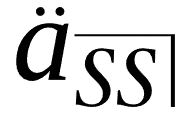FAQs
What is an actuary?
In simple terms, an actuary is a business professional who uses mathematics, statistics and computing skills to estimate the financial impact of uncertainty and help clients minimise risks.
Actuaries are in demand and well-rewarded for their analytical and problem-solving skills in a growing number of areas. These include traditional areas of practice such as general insurance, life insurance, superannuation and investment; and non-traditional fields such as: consulting, environmental finance, trading, data analytics and many more.
Despite the increasing competition in the actuarial job market, the profession continues to be strongly regarded as a career with a strong employment outlook and projected job growth. With numerous technical skills and transferable skills students acquired from the University of Melbourne, we have seen many graduates work in large insurance companies and other leading financial entities both domestically and internationally.
What sort of software programs are involved in Actuarial Studies?
Two software programs are used in the Actuarial Studies major.
The first is MATLAB, an environment used for mathematical calculations in the first and second year foundational mathematics subjects.
The second and dominating program used in the major is RStudio, an IDE for the programming language R. R is the required software for the actuarial accreditation curriculum and is widely used by both statisticians and actuaries when undergoing statistical inference or for creating client presentations.
To provide students with essential skills needed for actuarial work, R is used to apply many of the different theories learnt in third-year actuarial subjects such as ACTL30004, ACTL30007 and ACTL30008. Whilst this software is only introduced in second year statistics, some students may need more resources to develop these skills before their third year. The following resources are widely available for anyone who wants to hone their skills for both their studies and resume:
“An Introduction to Statistical Learning with Application in R”
“The R Software Fundamentals of Programming and Statistical Analysis”
Can I pursue a double major with Actuarial Studies?
Unbeknownst to many, you can definitely double major with Actuarial Studies and another commerce major. One caveat of choosing this pathway is that you will be unable to complete all the exemption subjects required to be an accredited actuary.
There are two main reasons why you might want to pursue a double major. Firstly, some students decide after their first or second year that Actuarial Studies isn't right for them and choose to pursue a second major to complement the technical skills already learnt. Alternatively, since you are also able to take the external pathway to become an accredited actuary, other students want to take second majors to gain a wider set of skills — whilst still studying for their actuarial accreditations with the Actuaries Institute.
If you have decided to do a double major, please seek the relevant course advice from Stop 1 to help you plan your study plan — the earlier you decide to change, the more flexibility you will be able to have with your subject choices (both in the Actuarial Studies major and in your second major). Otherwise, you can email education-team@melbournactuary.com for more information.
What options do I have after completing the undergraduate Actuarial Studies major?
After graduating with the Actuarial Studies major, you would have strong analytical and mathematical skills to work in a wide variety of practice areas. Whilst some graduates go on to work in non-actuarial roles, most would continue in their accreditation process to become a certified associate (AIAA) and even obtain their fellowship (FIAA).
As the undergraduate course only exempts you from five of the six modules of the Actuaries Institute Foundation program, further study is needed to develop the foundational skill-sets of an actuary. The primary avenues of completing the foundation program include:
studying with the Actuaries Institute (often in addition to working)
completing an honours degree
completing a master's degree
What is the difference between an Honours degree in Actuarial Studies, the Master of Commerce (Actuarial Science) and the Master of Actuarial Science?
The main distinction between the wide range of postgraduate awards in Actuarial Studies at the University of Melbourne lies in the prior study that you have completed before starting the course.
The Bachelor of Commerce (Honours) in Actuarial Studies (BH-COM) and Master of Commerce (Actuarial Science) (MC-COMACTS) both require an undergraduate degree with a major in Actuarial Studies to apply, and both will allow you to complete the Foundation and Actuary Program exemption subjects.
BH-COM is a shorter and more intensive course, with a research component that prepares students for practice (Actuarial Studies Project) or research (Actuarial Science Research Report).
MC-COMACTS is a longer course for students who wish to gain a breadth of skills through electives. Whilst the research component is not compulsory, students often still take the Actuarial Studies Project for its culminating experience.
The Master of Actuarial Science (MC-ACTSC), Master of Actuarial Science (Extended) (MC-ACTSCEX) and Master of Actuarial Science (Enhanced) (MC-ACTSCEN) are all courses available to students who have not studied all the prerequisite knowledge in Actuarial Studies in their undergraduate degree.
MC-ACTSC and MC-ACTSCEX are both courses for students who have a strong foundation in probability and statistics, with the only difference being MC-ACTSCEX having 50 extra credit points of subjects, allowing students to not only complete the exemption subjects for the Foundation Program, but also the university subjects for the Actuary Program.
MC-ACTSCEN is for students who have a foundation in mathematics, but not necessarily probability and statistics. Students who complete the extended course are able to complete the exemption subjects for the Foundation Program.
